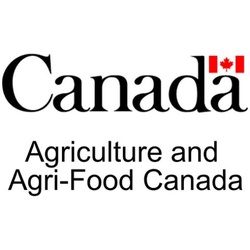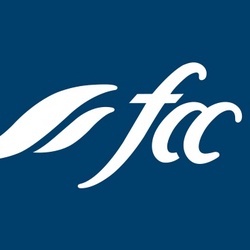
AgriScience Program — Projects – Not-for-profit
At a glance
- Up to 70% of project cost
- Open Date : March 31, 2023
- Closing date : March 31, 2028
- Agriculture, forestry, fishing and hunting
- Manufacturing
- Professional, scientific and technical services
- Canada
- Non-profit
- Public or Parapublic institution
- All revenue ranges
- All organization sizes
- Indigenous Peoples
- Research
- Environment
- Economic, Social and Community Development
- General public
- Indigenous peoples
- Business owners / entrepreneurs
- Nonprofits / charities
- Academia / students
- All structures
- National
Overview
Your not-for-profit organization can get up to $5 million over 5 years to fund 70% of the cost of pre-commercial scientific research in priority areas.
Activities funded
The AgriScience Program funds projects that promote innovation and support pre-commercial science activities in the agriculture and agri-food sector. It includes collaborative projects involving industry, government, and academia to address national priorities.
- Pre-commercial scientific research projects that benefit the agriculture and agri-food sector.
- Projects focusing on reducing greenhouse gas emissions and enhancing carbon sequestration.
- Collaborative projects addressing priority themes in agriculture.
- Innovative research initiatives led by industry with AAFC scientist collaboration.
Eligibility
Eligibility for the AgriScience Program is determined by specific requirements related to the applicant's profile and project focus.
- Applicants can include various organizations, but specific eligibility details are not explicitly provided in the context.
- Cost-sharing capabilities must align with program stipulations, such as AAFC funding a maximum of 50% or 70% for eligible costs based on the type of applicant and project focus.
- Indigenous applicants may be eligible for increased cost-share ratios.
- Collaboration with AAFC scientists can be part of the application (Vote 1), which requires entering into a Collaborative Research and Development Agreement (CRDA) with AAFC.
- Applicants must be able to enter into contribution and collaborative agreements specifying reporting and financial arrangements.
Who is eligible?
This program is targeted towards organizations and entities in the agriculture and agri-food sector in Canada interested in pre-commercial science activities and research. Eligible applicants include:- Canadian not-for-profit organizations involved in agriculture and agri-food research.- Industry groups or associations related to agriculture and agribusiness.- Academic institutions and universities with a strong emphasis on agricultural research.- Indigenous groups or organizations interested in agricultural innovation and research partnerships.- Private sector companies engaged in agriculture-related research activities, particularly those aligned with the program's objectives of addressing national themes and horizontal issues.Who is not eligible
There are specific types of companies that are not eligible for this grant.
- For-profit organizations
- Foreign entities
Eligible expenses
The AgriScience Program under the Sustainable CAP is focused on enhancing agricultural innovation through scientific research. Eligible activities for funding include projects under two main components and various priority areas targeting pre-commercial science initiatives that support industry-aligned agricultural advancements.
- Pre-commercial science activities supporting the agriculture and agri-food sector.
- Research projects addressing national agricultural themes and horizontal issues.
- Collaborations between industry, government, and academia to advance agricultural innovation.
Selection criteria
Here are the evaluation and selection criteria for this grant:
- Alignment with program objectives
- Demonstrated need and expected results
- Capacity to deliver
- Cost-effectiveness and value for money
- Risk and mitigation strategies
- Commitment to sustainable outcomes
- Collaboration and partnerships
How to apply
How to apply
- Access the application portal provided by Agriculture and Agri-Food Canada (AAFC).
- Ensure you have all necessary documentation ready as per the program requirements.
- Consult the application guide provided for specific instructions and details required for submission.
Complete the application and apply
- Fill in the application forms accurately including sections related to project description, budget, and timelines.
- Attach all required supporting documents, such as research plans, timelines, and budget outlines.
- Submit the completed application through the AAFC's online system.
- Ensure submission is before any deadlines or until the funding has been fully committed.
After you apply
- Await confirmation of receipt of your application from AAFC.
- Monitor any communications from AAFC for feedback or requests for additional information.
Additional information
Here are additional relevant details for this grant:
- The maximum funding for any single project is $5 million over the 2023 to 2028 period, with a total cap of $10 million for the Projects Component.
- Funding supports pre-commercial science activities and research specifically beneficial to the Canadian agriculture and agri-food sector.
- Collaborative support involves entering into a Collaborative Research and Development Agreement (CRDA) with AAFC, specifying milestones and licensing options.
- Cost-sharing details differ, with special provisions for not-for-profits focused on greenhouse gas reduction, where AAFC covers up to 70%.
- The program emphasizes partnerships between industry, government, and academia.
- Indigenous applicants may be eligible for increased cost-share ratios and are encouraged to seek further details from the program.
Frequently Asked Questions about the AgriScience Program — Projects – Not-for-profit Program
What is the AgriScience Program — Projects – Not-for-profit?
How much funding can be received?
What is the deadline to apply?
Who is eligible for the AgriScience Program — Projects – Not-for-profit program?
What expenses are eligible under AgriScience Program — Projects – Not-for-profit?
Who can I contact for more information about the AgriScience Program — Projects – Not-for-profit?
Where is the AgriScience Program — Projects – Not-for-profit available?
More programs like this

AgriScience Program – Clusters
Agriculture and Agri-Food Canada (AAFC)
Global Innovation Clusters
Innovation Canada
AgriCompetitiveness Program
Agriculture and Agri-Food Canada (AAFC)
Farm Equipment Financing
Farm Credit Canada (FCC)
Women Entrepreneur Program
Farm Credit Canada (FCC)
AgriAssurance Program – National Industry Association Component
Agriculture and Agri-Food Canada (AAFC)
African Swine Fever Industry Preparedness Program (ASFIPP) - Welfare Slaughter and Disposal Stream
Agriculture and Agri-Food Canada (AAFC)
AgriRisk Initiatives - Research and Development Contribution Funding
Agriculture and Agri-Food Canada (AAFC)
AgriRisk Initiatives - Microgrants Funding
Agriculture and Agri-Food Canada (AAFC)